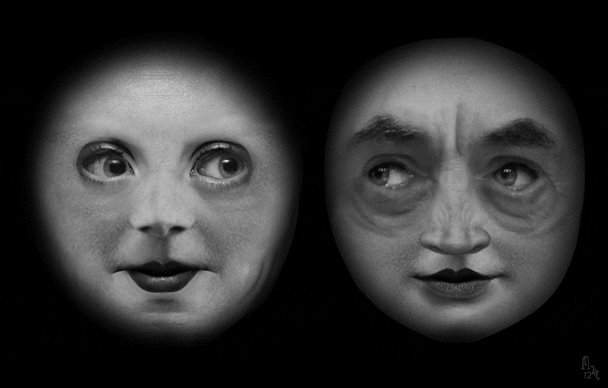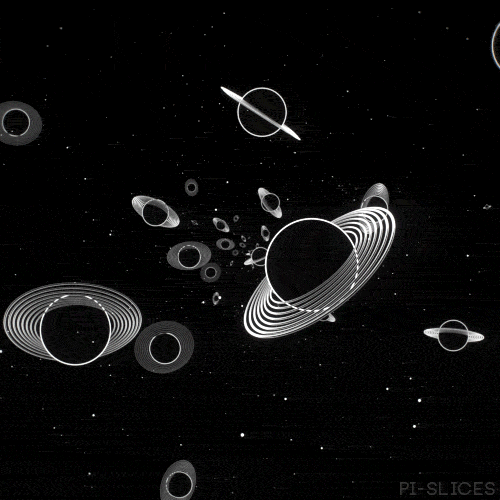Astrology has captivated human imagination for millennia, tracing its roots back to ancient civilizations. You might find it fascinating that the earliest records of astrological practices date back to the Babylonians around the second millennium BCE. They meticulously observed celestial bodies and their movements, believing that these heavenly phenomena could influence earthly events.
As you delve into the history of astrology, you’ll discover how it evolved from a rudimentary system of celestial observation into a complex framework that integrates mythology, philosophy, and science. As time progressed, astrology spread across cultures, adapting and transforming along the way. The Greeks played a pivotal role in shaping modern astrology, particularly through the works of philosophers like Ptolemy.
His seminal text, the “Tetrabiblos,” laid the groundwork for astrological thought in the Western world. You may appreciate how astrology was not merely a tool for divination but also a means of understanding human nature and the cosmos. This rich tapestry of history reveals how astrology has been intertwined with human culture, influencing art, literature, and even politics throughout the ages.
Key Takeaways
- Astrology has a long history dating back to ancient civilizations such as the Babylonians and Egyptians.
- There are 12 zodiac signs, each with its own unique characteristics and traits.
- The elements (fire, earth, air, water) and modalities (cardinal, fixed, mutable) play a significant role in shaping the personality of each zodiac sign.
- The Sun, Moon, and Rising signs are key components in understanding an individual’s personality and behavior.
- Astrology can be used to explore compatibility between different zodiac signs and understand the dynamics of relationships.
The Basics of Astrology: Exploring the 12 Zodiac Signs
At the heart of astrology lies the twelve zodiac signs, each representing distinct personality traits and characteristics. You might be intrigued to learn that these signs are divided into four elements: fire, earth, air, and water. Each element embodies specific qualities that shape how individuals express themselves and interact with the world around them.
For instance, fire signs like Aries, Leo, and Sagittarius are known for their passion and enthusiasm, while earth signs such as Taurus, Virgo, and Capricorn are often grounded and practical. As you explore each zodiac sign, you’ll uncover a wealth of information about their unique attributes. For example, Libras are often seen as diplomatic and charming, while Scorpios are known for their intensity and depth.
Understanding these signs can provide valuable insights into your own personality and those of others in your life. By recognizing the traits associated with each sign, you can foster better communication and relationships with friends, family, and colleagues.
The Elements and Modalities of the Zodiac: Understanding Their Influence

The elements and modalities of the zodiac further enrich your understanding of astrological influences. Each sign is not only defined by its element but also by its modality—cardinal, fixed, or mutable. Cardinal signs like Aries, Cancer, Libra, and Capricorn are initiators; they thrive on new beginnings and leadership roles.
You may find it interesting that these signs often take charge in situations requiring action or change. In contrast, fixed signs such as Taurus, Leo, Scorpio, and Aquarius are known for their stability and determination. They tend to resist change and prefer to maintain the status quo.
On the other hand, mutable signs like Gemini, Virgo, Sagittarius, and Pisces are adaptable and flexible. They excel in situations that require quick thinking and adjustment. By understanding these dynamics, you can better navigate your interactions with others based on their elemental and modal characteristics.
The Sun, Moon, and Rising Signs: How They Shape Your Personality
| Sign | Personality Traits |
|---|---|
| Sun Sign | Represents the core of who you are, your ego, and your identity. It influences your basic personality, your individuality, and your sense of self. |
| Moon Sign | Reflects your emotions, inner mood, and subconscious. It influences your emotional reactions, instincts, and how you nurture yourself and others. |
| Rising Sign | Represents the mask you present to the world, your outer personality, and your initial approach to new situations. It influences your appearance, first impressions, and how others perceive you. |
When you think about your astrological profile, you might immediately consider your Sun sign—the one most people identify with. However, your Moon sign and Rising sign (or Ascendant) play equally crucial roles in shaping your personality. Your Sun sign represents your core identity and ego; it reflects your conscious self and how you express your individuality.
You may resonate with the traits associated with your Sun sign but realize that there’s much more to your astrological makeup. Your Moon sign delves into your emotional landscape and inner world. It reveals how you process feelings and respond to emotional situations.
For instance, if your Moon is in Cancer, you might be nurturing and sensitive to the needs of others. Meanwhile, your Rising sign represents how you present yourself to the world—your outward demeanor and first impressions. If you have a Leo Rising, you may come across as confident and charismatic.
By exploring these three components together—Sun, Moon, and Rising—you can gain a more comprehensive understanding of yourself.
Astrology Compatibility: Exploring the Interactions Between Signs
Astrology compatibility is a captivating aspect that many people explore when considering relationships. You might wonder how different zodiac signs interact with one another and what dynamics emerge from these connections. Each sign has its unique strengths and challenges when paired with others.
For example, fire signs often find harmony with air signs; the enthusiasm of fire can be fueled by the intellectual stimulation provided by air. Conversely, earth signs may clash with fire signs due to differing priorities—earth values stability while fire seeks excitement. However, it’s essential to remember that compatibility is not solely determined by Sun signs; Moon signs and Rising signs also play significant roles in relationship dynamics.
By examining these various aspects of compatibility, you can gain insights into how to navigate romantic relationships or friendships more effectively.
The Role of Planets in Astrology: How They Impact Your Sign

In astrology, planets serve as powerful influencers that shape your experiences and personality traits. Each planet governs specific aspects of life; for instance, Venus is associated with love and beauty while Mars represents action and aggression. You may find it enlightening to explore how these planetary influences interact with your Sun sign to create a unique astrological profile.
For example, if you have a Taurus Sun but a Venus in Gemini, you might exhibit both stability in relationships (Taurus) while also enjoying intellectual stimulation (Gemini). Understanding these planetary influences can help you navigate challenges in life more effectively by recognizing which energies are at play during specific periods. By paying attention to planetary transits—how planets move through the zodiac—you can gain insights into upcoming opportunities or challenges.
Astrology in Daily Life: Using Zodiac Signs to Navigate Relationships and Decisions
Incorporating astrology into your daily life can provide valuable guidance as you navigate relationships and make decisions. You might consider using your knowledge of zodiac signs to enhance communication with friends or colleagues by understanding their traits better. For instance, if you know someone is a Virgo, you may approach them with a more detail-oriented perspective rather than relying solely on big-picture ideas.
Additionally, astrology can help you make informed decisions based on favorable planetary alignments or transits. For example, if Mercury is retrograde—a time often associated with communication breakdowns—you might choose to postpone important discussions or decisions until the energy shifts back to direct motion. By integrating astrology into your daily routine, you can cultivate a deeper awareness of yourself and those around you.
Debunking Astrology Myths: Separating Fact from Fiction in Zodiac Interpretation
As you explore astrology further, it’s essential to debunk common myths that often cloud its interpretation. One prevalent misconception is that astrology is purely deterministic—that it dictates your fate without room for personal agency. In reality, astrology serves as a tool for self-awareness rather than a rigid blueprint for life.
You have the power to make choices that shape your destiny despite any astrological influences. Another myth is that all individuals born under the same sign share identical traits or experiences. While there are commonalities among people of the same sign, individual experiences are influenced by various factors such as upbringing, environment, and personal choices.
By recognizing these nuances within astrology, you can appreciate its depth while avoiding oversimplification. In conclusion, astrology offers a rich tapestry of insights into human nature and relationships. By understanding its history, exploring zodiac signs and their elements, delving into compatibility dynamics, and recognizing planetary influences, you can navigate life with greater awareness.
As you continue your journey through astrology, remember to approach it with an open mind—embracing both its wisdom and its complexities while debunking myths along the way will enhance your experience significantly.
FAQs
What are astrology signs?
Astrology signs, also known as zodiac signs, are a system of twelve symbols based on the constellations that are said to influence a person’s personality, behavior, and destiny.
What are the twelve astrology signs?
The twelve astrology signs are Aries, Taurus, Gemini, Cancer, Leo, Virgo, Libra, Scorpio, Sagittarius, Capricorn, Aquarius, and Pisces.
How are astrology signs determined?
Astrology signs are determined by the position of the sun at the time of a person’s birth. Each sign is associated with specific dates in the calendar year.
What do astrology signs reveal about a person?
Astrology signs are believed to reveal certain personality traits, strengths, weaknesses, and tendencies of individuals based on the characteristics associated with each sign.
Can astrology signs predict the future?
Astrology signs are not considered to be able to predict the future with certainty. They are more commonly used to provide insights into personality and behavior rather than to make specific predictions.




